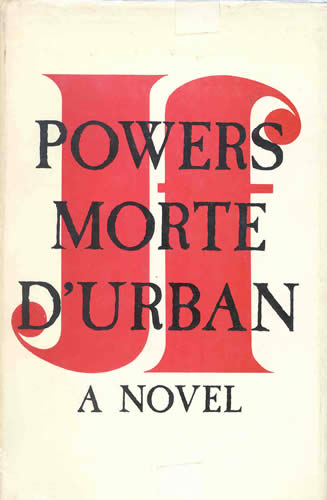This week I’ve written two bonus drama columns for The Wall Street Journal. Today I report on The Columnist, David Auburn’s new play. Here’s an excerpt.
* * *
 David Auburn has written a pretty good play about an immensely promising subject. It’s the gap between expectation and result that makes “The Columnist” a disappointment, though there’s nothing at all disappointing about the Manhattan Theatre Club’s production, cleanly and clearly staged by Daniel Sullivan, or John Lithgow’s elegantly flamboyant performance as Joseph Alsop, the once-celebrated newspaper columnist who coined the phrase “domino theory.” A blue-blooded WASP who supported the Vietnam War long after most of his fellow journalists jumped ship, Alsop got into boiling-hot water when the KGB found out in 1957 that he was also a closeted homosexual and attempted to blackmail him. “The Columnist” revolves around these two facts, but Mr. Auburn devotes far more time and energy to the first one, and my guess is that by intermission you’ll be thinking that he should have written his play the other way around.
David Auburn has written a pretty good play about an immensely promising subject. It’s the gap between expectation and result that makes “The Columnist” a disappointment, though there’s nothing at all disappointing about the Manhattan Theatre Club’s production, cleanly and clearly staged by Daniel Sullivan, or John Lithgow’s elegantly flamboyant performance as Joseph Alsop, the once-celebrated newspaper columnist who coined the phrase “domino theory.” A blue-blooded WASP who supported the Vietnam War long after most of his fellow journalists jumped ship, Alsop got into boiling-hot water when the KGB found out in 1957 that he was also a closeted homosexual and attempted to blackmail him. “The Columnist” revolves around these two facts, but Mr. Auburn devotes far more time and energy to the first one, and my guess is that by intermission you’ll be thinking that he should have written his play the other way around.
“The Columnist” starts off, so to speak, with a bang. In the first scene, we see Alsop in bed with Andrei (Brian J. Smith), the young Russian whose job it is to lure him into the clutches of the KGB. But instead of capitalizing on that exciting opening, Mr. Auburn embarks on a stodgy tour d’horizon of the second half of Alsop’s life. We meet Stewart (Boyd Gaines), his younger brother, erstwhile writing partner and lifelong rival; Susan Mary (Margaret Colin), the widowed society lady with whom he entered into an uneasy mariage blanc in 1961, and Abigail (Grace Gummer), Susan’s daughter; and an unrecognizably fictionalized version of David Halberstam (Stephen Kunken), the earnest young reporter who opposed the Vietnam War as ardently as Alsop backed it.
“The Columnist” covers an 11-year span of time, which is too much for Mr. Auburn to fit gracefully into a two-hour play. In short order it turns into a pageant–the Kennedy inauguration, a side trip to Vietnam, the Kennedy assassination, Joe’s divorce, Stewart’s death, even an antiwar protest. It would have taken a Tom Stoppard to shape this endless succession of events into a dynamically theatrical plot. Mr. Auburn, for all his skill, lacks that kind of flair, nor does he have Mr. Stoppard’s knack for bringing historical figures to life….
Mr. Auburn finds his footing in the more personal parts of “The Columnist,” especially the well-written scenes in which Alsop interacts with his wife and stepdaughter (who are portrayed with winning sensitivity by Ms. Colin and Ms. Gummer). He also has Mr. Lithgow in his corner, which makes all the difference in the world. Yes, Mr. Lithgow’s Alsop is a slightly over-arch caricature–the real Joe Alsop played it rather closer to the vest than that–but the grandiose panache with which he coaches Abigail for a Latin exam or banters with his Soviet bedmate about the evils of communism is impossible to resist….
* * *
Read the whole thing here.
To see Brian Lamb interviewing Joseph Alsop on C-Span in 1984, go here.
Archives for April 26, 2012
OGIC: Knowing beasts
Hello, OGIC here. I’ve been away from the blog for two years, so to get my feet wet again, here’s just a frivolous post about my current reading.
Two-thirds of the way through J. F. Powers’s novel Morte D’Urban, I’m wondering where this book has been all my life. Father Urban, the ambitious Clementine priest at its center, surprised me from the beginning. He treats his vocation, Terry wrote in the New Criterion years ago, “precisely as he would any other job: with one eye firmly fixed on the main chance.” He doesn’t suffer his less worldly, less canny colleagues gladly, and Powers does a wonderful job of satirizing both his main character and those around him as they appear through Father Urban’s ever appraising eyes.
 I’ve been laughing helplessly through the book, but have also read far enough in Terry’s essay to know that this comedy is headed somewhere serious. Not having reached that point yet, I want to pull out for your amusement something very small and inconsequential in the book, and very charming: dogs.
I’ve been laughing helplessly through the book, but have also read far enough in Terry’s essay to know that this comedy is headed somewhere serious. Not having reached that point yet, I want to pull out for your amusement something very small and inconsequential in the book, and very charming: dogs.
In what seems to me a purely playful impulse–though for such a meticulous writer, I wonder whether something more is going on–Powers outright anthropomorphizes the three dogs I’ve encountered so far in Morte D’Urban. In a few quick strokes, he makes them seem to observe the human folly playing out in front of them with bemusement, as you might imagine some of the dogs drawn by James Thurber or George Booth doing. Here, they even (sort of) speak. In some passages you get the sense they are secretly running the show. I find them among the most memorable people in the book.
The first dog to appear remains unnamed. It resides in the station at Duesterhaus, the Minnesota outpost to which Father Urban has been banished from the place he deems his proper setting, Chicago. On arrival, Father Urban instantly gets a taste of his new isolation:
The station agent, writing at his desk, seemed unaware of [Father Urban]. An old dog lying behind the counter woke up and gave him a look that said, Can’t you see he’s working on his report?
“I’d like to call a taxi, if I may,” said Father Urban, giving the town the benefit of a doubt, and then he waited.
Presently the agent got up and came to the counter. He pushed the telephone at Father Urban and tossed him a thin directory. “Cost you a dime to call,” he said.
The dog opened its eyes, as if it wanted to see how Father Urban would take the bad news.
Father Urban put a dime on the counter.
The dog closed its eyes.
 The next dog, Rex, belongs to a local man who sells the land for a golf course to the Clementine order, a deal put together by Father Urban with the backing of Billy Cosgrove, a patron from Chicago. On his first visit, “Father Urban found Mr. Hanson and the dog at home,” Powers writes. “The dog seemed to recognize him, but Mr. Hanson didn’t, and so Father Urban introduced himself.”
The next dog, Rex, belongs to a local man who sells the land for a golf course to the Clementine order, a deal put together by Father Urban with the backing of Billy Cosgrove, a patron from Chicago. On his first visit, “Father Urban found Mr. Hanson and the dog at home,” Powers writes. “The dog seemed to recognize him, but Mr. Hanson didn’t, and so Father Urban introduced himself.”
The black dog largely takes over the situation when Father Urban arrives with several associates on his next visit.
Mr. Hanson and the truck were elsewhere, but Rex showed the party around the farm. Most of the time they walked in silence, Mr. Robertson occasionally raising small binoculars to his eyes. When they were back where they’d started from a half hour before, Billy said:
“Well?”
Mr. Robertson gave the frozen ground, which he’d been eying from all angles, from close up and afar, one last kick, and said:
“I don’t see why not.”
“Let’s make it a standout course,” said Billy.
As they were getting into the cars, Monsignor Renton now alone in his, Rex spoke to them, and a moment later Mr. Hanson and the truck appeared.
Billy, who had been told about Father Urban’s accident, said to Mr. Hanson: “Paid that bill yet–that collision bill?”
“Yar, I got to pay it,” said Mr. Hanson.
“Yar,” said Rex to Monsignor Renton.
It’s worth noting that the buyers eventually negotiate for Hanson to throw in the dog with the land, in a conversation Rex follows closely. Later an “aged Airedale” named Frank turns up, the color of “dark chocolate that had melted and hardened and lightened,” but I’ll let you discover him yourself if you happen to pick up the book–which you really, really should. In the meantime, I’ll try to find out whether Powers was a dog owner, and what his dogs thought about it all.
TT: So you want to see a show?
Here’s my list of recommended Broadway, off-Broadway, and out-of-town shows, updated weekly. In all cases, I gave these shows favorable reviews (if sometimes qualifiedly so) in The Wall Street Journal when they opened. For more information, click on the title.
BROADWAY:
• Anything Goes (musical, G/PG-13, mildly adult subject matter that will be unintelligible to children, closes Sept. 9, reviewed here)
• The Best Man (drama, PG-13, closes July 1, nearly all performances sold out last week, reviewed here)
• Death of a Salesman (drama, PG-13, unsuitable for children, all performances sold out last week, closes June 2, reviewed here)
• Evita (musical, PG-13, nearly all performances sold out last week, reviewed here)
• Godspell (musical, G, suitable for children, reviewed here)
• How to Succeed in Business Without Really Trying (musical, G/PG-13, perfectly fine for children whose parents aren’t actively prudish, reviewed here)
• Once (musical, G/PG-13, reviewed here)
• Other Desert Cities (drama, PG-13, adult subject matter, closes June 17, reviewed here)
• Venus in Fur (serious comedy, R, adult subject matter, closes June 17, reviewed here)
OFF BROADWAY:
• Avenue Q (musical, R, adult subject matter and one show-stopping scene of puppet-on-puppet sex, reviewed here)
• The Fantasticks (musical, G, suitable for children capable of enjoying a love story, reviewed here)
• 4000 Miles (drama, PG-13, closes June 17, reviewed here)
• Million Dollar Quartet (jukebox musical, G, off-Broadway remounting of Broadway production, original run reviewed here)
• Saint Joan (drama, G/PG-13, unsuitable for children, extended through May 13, reviewed here)
• Tribes (drama, PG-13, closes Sept. 2, reviewed here)
TT: Almanac
“Vanity plays lurid tricks with our memory.”
Joseph Conrad, Lord Jim
